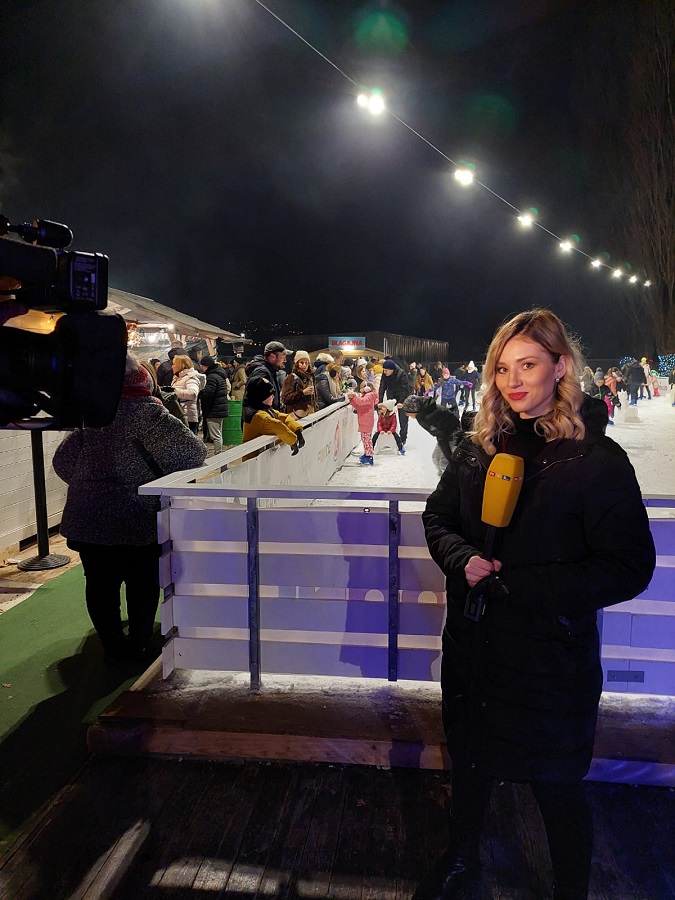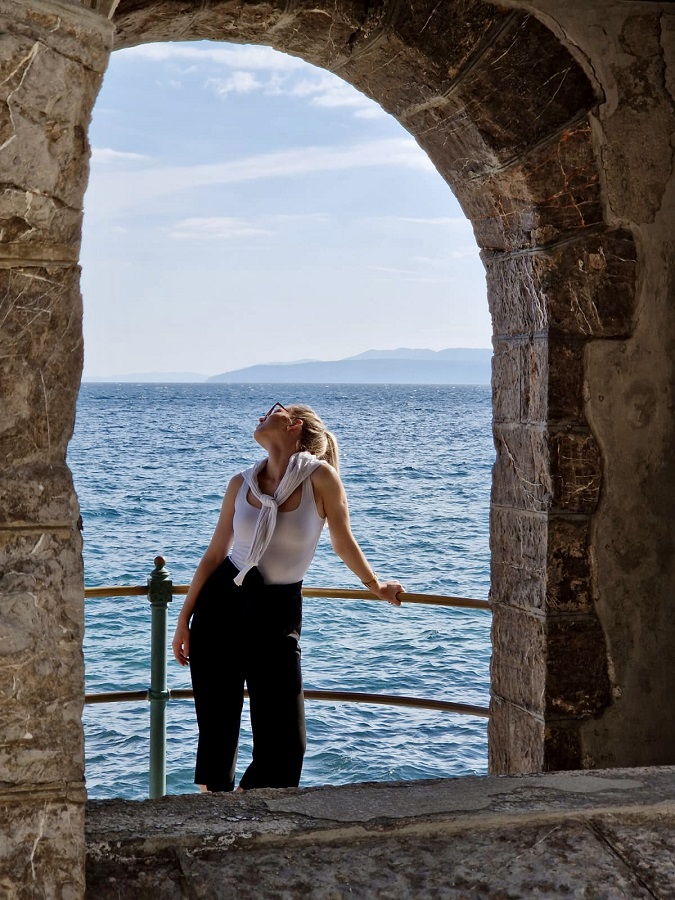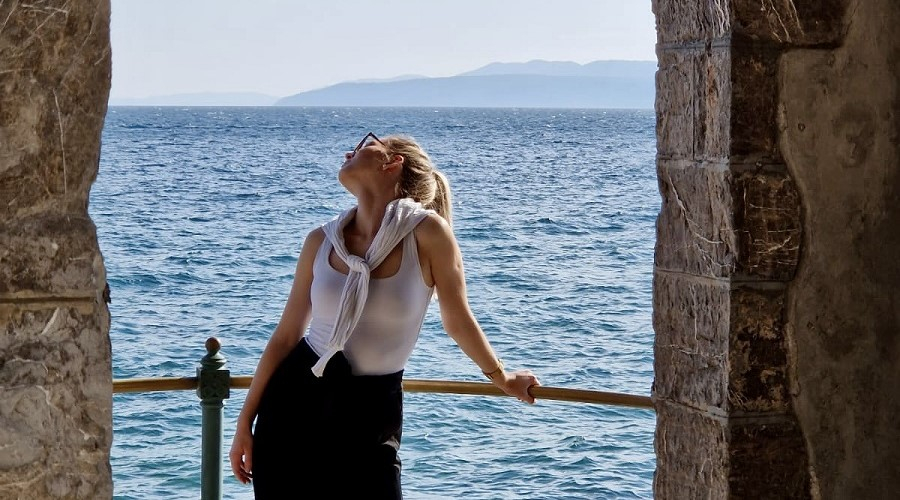Unlike most of the returnees in this new TCN series who lived abroad for decades, my journey as a foreigner was much shorter but extremely valuable to me. Today I’m a television reporter and a journalist – but almost 10 years ago, I was a girl with a dream to study abroad. I was born in the capital of Croatia, Zagreb. I had only just turned 19 when I finished high school and moved to the UK to study Multimedia Journalism at the University of Northampton. All by myself, without knowing a single person there, that “adventure” was exciting and frightening at the same time. The life experience I gained there is something I would never obtain or experienced if I had stayed in Croatia, and it is something I will always appreciate. However, after graduation, my heart said – it was time to get back home.
1. You made the switch to Croatia. Tell us a little about the decision process and how long it took for you to get on the plane.
When I decided to return home, it was also a time when many of my peers in Croatia decided to move to another country. So, my decision wasn’t quite popular and was surprising to many. It took me a bit of thinking whether “should I stay or should I go.” But when I graduated, the decision came naturally to me. I was ready to pack my UK experiences and memories in my luggage and start a new chapter at home.

2. What did your family and community back home think of your decision at the time?
My family was supportive. They knew this decision was mine to make. However, there were those who were surprised. Some thought it was a great decision; some thought that I must be, well, crazy. Many expected I would continue my life overseas since I finished University abroad. And even though that seemed a bit discouraging, given the atmosphere in the country at the time, I did understand where this questioning was coming from.
3. Where did you get your information about the realities of Croatia prior to coming?
I knew mostly everything because I lived in Croatia prior to moving to the UK, however, now I saw things from a different perspective. I understood that some things at home might be a struggle, but I also felt that anything is possible for a person who is willing to work hard. When I was leaving Croatia, even as a teenager, I was frustrated with corruption, nepotism, bureaucracy, and, in general, the bad atmosphere in the country. But living in the UK also made me realize all the positives that Croatia has. I missed the sun and the seaside, Zagreb’s city center, coffee culture and our humor, and all those little things that make life here nice. So, when I moved back here, at first, I saw everything through rose-colored glasses, which also wasn’t good.

4. What were you most nervous about making the switch? What was your biggest fear, and what was the reality of what you found?
My biggest fear was – what if I ever regret moving back to Croatia? Up until now, I still haven’t.
5. Think back to the time before you arrived. What were your perceptions about Croatia, and how were they different from the reality you encountered?
At first, my perception was colored pink. Now, I look at everything much more realistically.
6. You are still here, so obviously, the pros outweigh the cons. Tell us about some of the things that you love about being in Croatia, as well as some of the things you don’t like.
I love that people here socialize, spend time with each other, talk, and laugh. I appreciate that I feel safe on the streets of my city. I love the life I built for myself here since I returned. I like that I can be at the seaside in two hours if I wish and can also visit all the neighboring countries in a couple of hours too if I decide to make a quick weekend getaway. On the other hand, and like most young people here, I dislike nepotism and corruption. I dislike how slowly things are changing for the better around here. For example, population decline has been one of the hot topics here for many years now, yet we do not see a systematic effort to tackle this challenge. There is definitely not enough effort put into getting young people to stay here. And while the population is facing a decline, the number of people living in poverty is increasing. This is a sad reality for a state with so much potential.
7. What advice do you have for others thinking about making a move from the diaspora?
Connect with people online and talk! There are so many different pages where people who went through similar experiences will happily share it with others and answer all the questions.
8. How do you think Croatia can better assist those who are looking to return to the Homeland?
Firstly, I have to say I applaud all the people behind websites that are offering advice and resources to foreigners and the diaspora on how to live and work in Croatia. They are untangling many Croatian bureaucratic entanglements that are foreign not only to foreigners or the diaspora but also to Croatians who live here. These people are taking a lot of burden off the government, as people are finding the right answers on those pages rather than contacting and asking these questions the relevant government offices. However, I do hope that one day the Croatian government will have a similar page where all the resources will be in one place and where it will be clearly outlined what services the country provides and where. I really hope the government will make the bureaucratic procedures simpler and that most things will be able to be done digitally. Until that beautiful, sunny day happens, if moving to Croatia, arm yourself with patience and humor.

****
Thanks, Ida, and good luck with https://idahamer.com/
https://www.linkedin.com/in/ida-hamer-026461111/
****
You can follow the TCN Croatian Returnees series here.
****
What is it like to live in Croatia? An expat for 20 years, you can follow my series, 20 Ways Croatia Changed Me in 20 Years, starting at the beginning – Business and Dalmatia.
Follow Paul Bradbury on LinkedIn.
Croatia, a Survival Kit for Foreigners is now available on Amazon in paperback and on Kindle.












